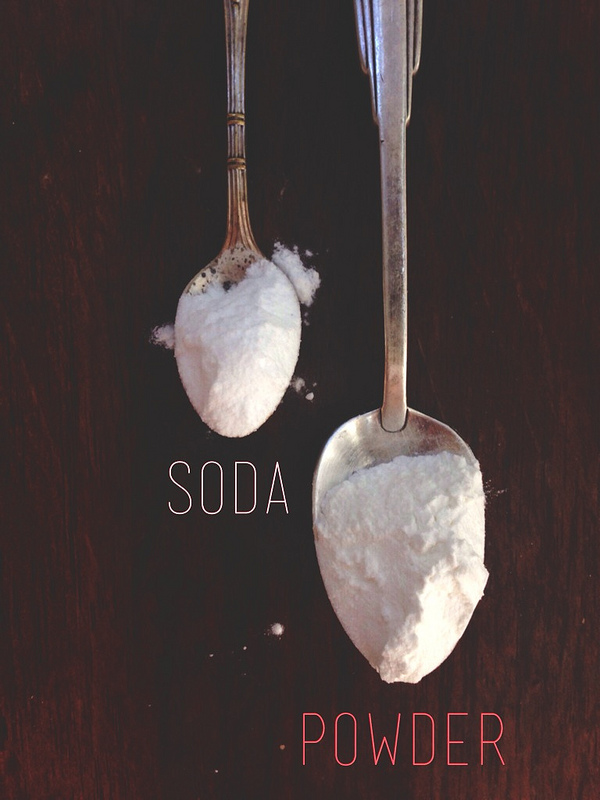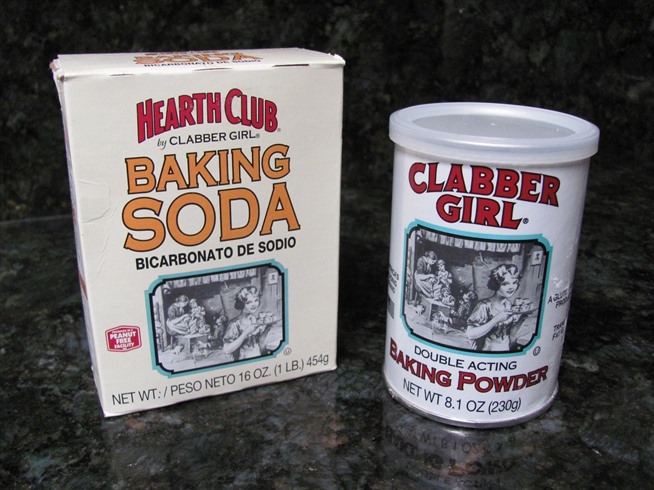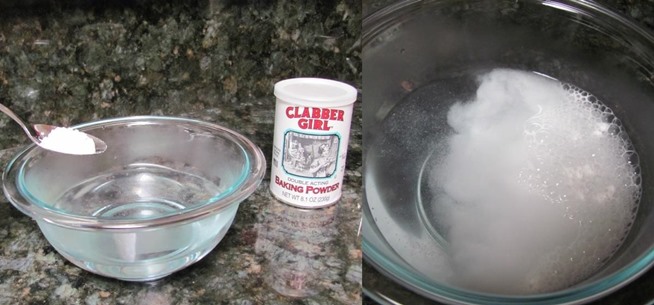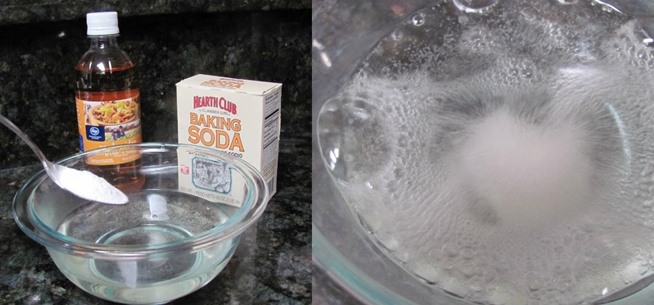The Difference Between Baking Soda and Baking Powder
Baking soda and baking powder are both odorless white powders that work their magic in cakes and other baked goodies. Though they’re both white powders, the two are certainly not interchangeable. Let’s talk about the facts behind these baking essentials.

Baking soda is also known as sodium bicarbonate. When sodium bicarbonate meets with heat, carbon dioxide gas is formed. It’s this gas that gives rise to our favorite cakes, cookies and biscuits. There is one drawback to the production of this gas. When heated, sodium bicarbonate also produces sodium carbonate, which doesn’t taste very good. If you’ve ever eaten any metallic tasting cakes or biscuits, you know what I’m talking about.
Thankfully, the metallic taste of sodium carbonate can be neutralized by acid. Lemon, yogurt, buttermilk, and unsweetened natural cocoa powder can neutralize the taste of sodium carbonate and keep our baked goods risen and lifted.
Baking powder is a mixture of baking soda and acid. Baking powder is made up of baking soda, a powdered acid, and cornstarch.
Most baking powders are labeled ‘double-acting’ meaning they release a small amount of carbon dioxide gas when they’re stirred into the batter or dough, but they release a majority of their precious gas when triggered by the heat of the oven.
Because baking powder is a leavener that contains both the sodium bicarbonate and the flavor-saving acid, it is usually paired with non-acid ingredients like whole milk and Dutch-processed cocoa.
Baking soda needs an acid. Baking powder has an acid. Easy, right?
How We Tell if Baking Powder and Baking Soda are Still Fresh
Ok, now that we know the difference between them and what they are…how do we tell if they are still good? I have been thinking about this for some time now, but have been too lazy to look it up, I guess. My little container of baking powder I use to this day (this is embarrassing to admit) was my roommate’s that I accidentally packed with my stuff from 2006! Yikes! And I have still been using it. I guess I have never thought it seemed necessary to buy a new one since I haven’t felt like anything I have baked while using it has turned out flat or anything, so this must be the world’s most long-lasting baking powder EVER! Thanks again, Laurel! :)

How to Tell if Baking Powder Has Expired
Come to find out, baking powder lasts about 9-12 months before it needs to be replaced. Testing it is super easy. Just stir about half a teaspoon of baking powder into a cup of hot water. It will immediately start to fizz and release carbon dioxide gas if it's still fresh enough to use. This trick should work with both single- and double-acting powder.

How to Tell if Baking Soda Has Expired
Baking soda (aka sodium bicarbonate) is said to have an infinite shelf life, but after you've had it for a few years you should test to make sure it hasn't lost all its potency. Unlike baking powder, baking soda only reacts when you add an acid to the solution.
To test it, add half a teaspoon of vinegar to a cup of hot water, then stir in half a teaspoon of baking soda. Like the baking powder, if it produces a lot of carbon dioxide bubbles, it's still good.

Do you test your baking powder and soda for freshness, or just use them and hope for the best? Let me know in the comments.
- joythebaker.com
- food-hacks.wonderhowto.com
 Mary Richardson
Mary Richardson
Weekly Newsletter Contributor since 2014
Email the author! mary@dvo.com
